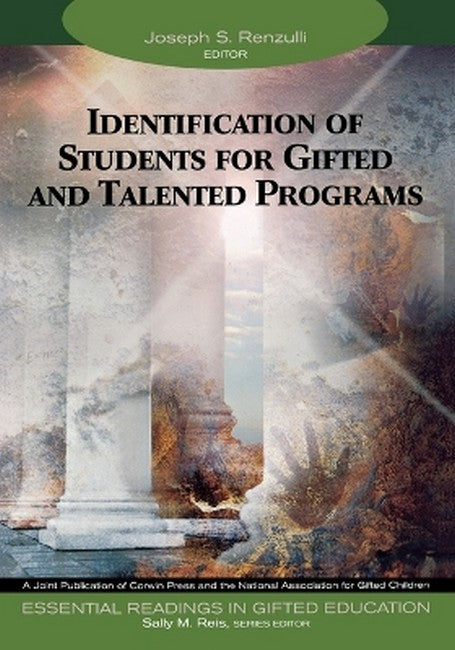Joseph S. Renzulli is professor of educational psychology at the University of Connecticut, where he also serves as director of the National Research Center on the Gifted and Talented. His research has focused on the identification and development of creativity and giftedness in young people and on organizational models and curricular strategies for total school improvement. A focus of his work has been on applying the strategies of gifted education to the improvement of learning for all students. He is a fellow in the American Psychological Association and was a consultant to the White House Task Force on Education of the Gifted and Talented. He was recently designated a Board of Trustees Distinguished Professor at the University of Con-necticut. Although he has obtained more than $20 million in research grants, he lists as his proudest professional accomplishments the UConn Mentor Connection program for gifted young students and the summer Confratute program at UConn, which began in 1978 and has served thousands of teachers and administrators from around the world. Sally M. Reis is a professor and the department head of the Educational Psychology Department at the University of Connecticut where she also serves as principal investigator of the National Research Center on the Gifted and Talented. She was a teacher for 15 years, 11 of which were spent working with gifted students on the elementary, junior high, and high school levels. She has authored more than 130 articles, 9 books, 40 book chapters, and numerous monographs and technical reports. Her research interests are related to special populations of gifted and tal-ented students, including: students with learning disabilities, gifted females and diverse groups of talented students. She is also interested in extensions of the Schoolwide Enrichment Model for both gifted and talented students and as a way to expand offerings and provide general enrichment to identify talents and potentials in students who have not been previously identified as gifted. She has traveled extensively conducting workshops and providing profes-sional development for school districts on gifted education, enrichment programs, and talent development programs. She is co-author of The Schoolwide Enrichment Model, The Secondary Triad Model, Dilemmas in Talent Development in the Middle Years, and a book published in 1998 about women's talent development titled Work Left Undone: Choices and Compromises of Talented Females. Sally serves on several editorial boards, including the Gifted Child Quarterly, and is a past president of the National Association for Gifted Children.
Request Academic Copy
Please copy the ISBN for submitting review copy form
Description
About the Editors Series Introduction - Sally M. Reis Introduction to Identification of Students for Gifted and Talented Programs - Joseph S. Renzulli 1. Is Any Identification Procedure Necessary? - Jack W. Birch 2. Myth: There Must be "Winners" and "Losers" in Identification and Programming! - Carolyn M. Callahan 3. The Role of Creativity in the Identification of the Gifted and Talented - E. Paul Torrance 4. Identifying Young, Potentially Gifted, Economically Disadvantaged Students - James H. Borland, Lisa Wright 5. Nonentrenchment in the Assessment of Intellectual Giftedness - Robert J. Sternberg 6. Lies We Live By: Misapplication of Tests in Identifying the Gifted - Robert J. Sternberg 7. Myth: The Gifted Constitutes 3-5% of the Population - Joseph S. Renzulli 8. The Legacy and Logic of Research on the Identification of Gifted Persons - Joseph S. Renzulli, Marcia A. B. Delcourt 9. Problems in the Identification of Giftedness, Talent, or Ability - John F. Feldhusen, J. William Asher, and Steven M. Hoover 10. Cognitive Profiles of Verbally and Mathematically Precocious Students: Implications for Identification of the Gifted - Camilla Persson Benbow, Lola L. Minor 11. Screening and Identifying Students Talented in the Visual Arts: Clark's Drawing Abilities Test - Gilbert Clark 12. The Characteristics Approach: Identification and Beyond - Sylvia Rimm 13. The Influence of Identification Practices, Race and SES on the Identification of Gifted Students - Jamieson A. McKenzie 14. Labeling Gifted Youngsters: Long-term Impact on Families - Nicholas Colangelo, Penny Brower Index

